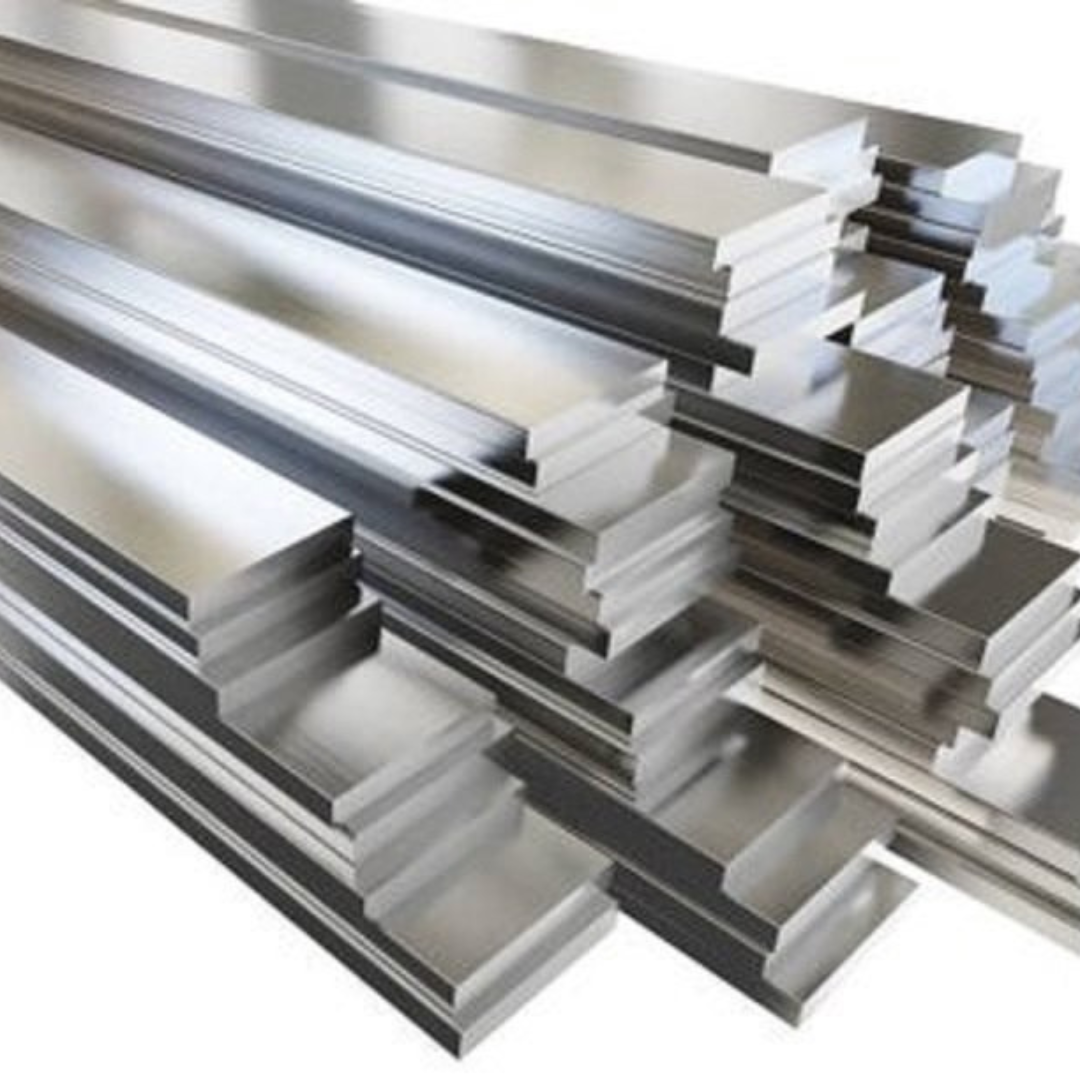
Introduction
When it comes to steel products in construction and manufacturing, plain flat bars stand out as one of the most versatile materials. These simple yet highly functional steel bars are used in various applications, from structural supports to decorative metalwork. Thanks to their durability, ease of fabrication, and cost-effectiveness, plain steel bars are a go-to choice for builders, engineers, and metalworkers.
In this blog, we will explore the uses of plain flat bars, their advantages in construction, and how they contribute to different projects.
What is a Plain Flat Bar?
A plain flat bar is a solid, rectangular-shaped metal bar made from steel, aluminum, or other alloys. Typically, available in various thicknesses and widths, these bars are known for their strength, adaptability, and ease of use in construction and metalworking projects.
Common specifications of plain flat bars include:
Whether you are reinforcing a structure, building a framework, or fabricating custom metal components, plain steel bars offer the perfect combination of durability and flexibility.
Uses of Plain Flat Bar in Construction
Plain flat bars are extensively used in different sectors due to their versatility. Here are some of the most common applications:
1. Structural Support and Reinforcement
Flat bars provide extra strength in concrete reinforcements, steel frameworks, and load-bearing structures. Their high tensile strength makes them ideal for supporting weight and pressure in construction projects.
2. Fabrication and Welding Projects
In metalworking with flat bars, these bars are easily cut, shaped, and welded into various forms. Metal fabricators use them to create brackets, frames, and supports for industrial and commercial applications.
3. Manufacturing of Machinery and Equipment
Many industries rely on flat bar fabrication to manufacture heavy machinery, conveyor systems, and agricultural equipment. Their uniform thickness and structural integrity make them ideal for precision engineering.
4. Fencing, Gates, and Railings
For decorative and functional purposes, structural flat bars are commonly used in fencing, gates, and railings. Their smooth, flat surface makes it easy to paint, coat, or customize them for appeal.
5. Brackets and Fastening Components
Engineers and contractors use plain steel bars to create brackets, anchor points, and fastening systems in buildings and bridges. Their durability ensures long-lasting support.
6. Custom Metalwork and DIY Projects
From artistic sculptures to home improvement projects, plain flat bars are perfect for DIY enthusiasts who need a reliable, easy-to-work-with material for custom fabrication.
Benefits of Plain Flat Bar in Construction
The increasing use of plain steel bars in construction and metalworking is due to their numerous benefits. Let’s take a closer look at why they are so popular:
1. High Strength and Durability
Flat bars are made from high-quality steel, providing excellent tensile strength and resistance to wear and tear. They can withstand extreme loads, making them ideal for structural applications.
2. Easy to Cut, Shape, and Weld
Unlike other metal components, plain flat bars are easy to manipulate using basic metalworking tools. Whether you need to cut them into smaller pieces or weld them into different shapes, their workability is unmatched.
3. Cost-Effective Material
Compared to more complex steel components, flat bars are affordable and readily available, making them a budget-friendly choice for construction and fabrication projects.
4. Corrosion Resistance with Proper Coating
When exposed to moisture or harsh environments, protective coatings such as galvanization or painting can enhance the longevity of plain steel bars, preventing rust and degradation.
5. Versatile Across Multiple Industries
From automotive and aerospace to construction and furniture making, flat bars serve multiple purposes across different industries. Their ability to adapt to various projects makes them an essential component in manufacturing.
6. Sustainable and Recyclable
Steel flat bars are environmentally friendly, as they can be recycled and repurposed without losing their strength or quality. This makes them a sustainable choice for modern construction practices.
Choosing the Right Plain Flat Bar for Your Project
When selecting a plain flat bar, consider the following factors to ensure you choose the right one for your needs:
Material Type: Carbon steel for strength, aluminum for lightweight applications.
Thickness and Width: Based on the load-bearing capacity required for the project.
Finish: Hot-rolled for rougher applications, cold-drawn for precision engineering.
Length: Custom-cut sizes are available for specific project requirements.
By carefully selecting the right plain steel bar, you can maximize efficiency and durability in your construction or fabrication work.
Future Trends in Plain Flat Bar Applications
With advancements in steel manufacturing and metalworking technologies, plain flat bars continue to evolve in their applications. Here are some trends to watch:
Keeping up with these trends will help businesses and individuals make the most of plain flat bars in construction and beyond.
Final Thoughts
The plain flat bar is a fundamental steel component that plays a crucial role in construction, fabrication, and metalworking. Its strength, versatility, and ease of customization make it an essential material for projects ranging from structural reinforcements to decorative metalwork. Whether you are a builder, engineer, or DIY enthusiast, incorporating flat bars into your work ensures durability, reliability, and cost-efficiency.
As the demand for high-quality steel bars grows, advancements in fabrication techniques and protective coatings will continue to enhance their performance across industries. By selecting the right type, thickness, and finish for your specific needs, you can maximize the benefits of plain flat bars in any application. Whether used in large-scale industrial projects or small custom fabrications, this simple yet powerful material remains an indispensable asset in modern construction and manufacturing.
For high-quality plain flat bars that meet your construction and fabrication needs, Yaxis Steel is your go-to supplier. With a strong focus on durability, precision, and customer satisfaction, they offer premium steel products tailored for various applications. Visit their office at 607/608, 6th Floor, Clover Hills Plaza, NIBM Road, Kondwa, Pune – 411048, or contact them at (+91) 8956025602 / (+91) 8956025601 for expert guidance. Explore their offerings today at Yaxis Steel and get the best steel solutions for your projects!